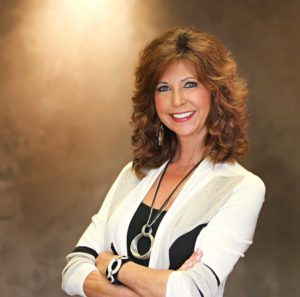Helping women find outlets for early breast cancer detection is what Spokane based non-profit Beyond Pink does. Advocating a technology that helps detect cancer cells years ahead of conventional methods, the group has raised $1.5 million through 13 years for the cause according to co-founder Charlie Brewer.
Thermography has been in practice in the United States since 1982, but has not been at the forefront of preventative treatment procedures. Brewer hopes to continue increasing awareness of thermography as an early detection option for women because the earlier people know about cancer cells the sooner they can be evaluated for treatment.
Brewer described that she likes to be on the pro-active side of healthcare and that’s why she strongly advocates preventative options rather than reactive options.
She also explained that her interest in helping women find treatments comes from personal experience, as she supported her sister through two bouts with breast cancer.
“My sister was on her second round of breast cancer at 43,” Brewer said. “Her first round was at 37, and of course she’s doing well now but she went through mastectomy, hysterectomy, and chemotherapy.”
“I was so frustrated because I didn’t understand how she could get suddenly sick again through all of the screenings,” she continued. “You suddenly get hit by a car; you don’t suddenly just get cancer so why can’t we see it coming sooner.”
After reading an article by and meeting Karla Watkins, the two founded the group to help raise awareness of the technology and also act as a funding mechanism for the treatment.
One of the biggest issues early on was that no insurance companies covered thermography as a treatment, so it was difficult for women to readily access it as a medical treatment as Brewer explained.
“We really needed a funding mechanism because it’s not covered by insurance at all,” said Brewer. “It’s proactive and preventative by nature, and our healthcare system here doesn’t seem to work that way. That’s when we started putting together fundraisers.”
They were quickly inspired to become an official 501-c3 nonprofit so Beyond Pink could really get established and hold large fundraisers. Brewer described that getting everything up and running was the most difficult stretch.
“Our first five years we were constantly saying “How hard could that be?” as we needed a website, and a way for people to apply for help, and we needed a bank account,” Brewer laughingly said. “We kind of went at it backwards and should have had things in place before becoming official but it came together regardless.”
Now they hold their biggest fundraiser of the year each Fall, and that is the annual Fashion Show Fundraiser which will be held October 15 this year.
Brewer explained that they have been able to consistently get out in the public to help educate people about thermography as an option, and her passion is in educating people about it. She also describes the community partnerships as an essential part of the process. Sponsors will host events at their businesses and invite the public to learn about early detection and thermal imaging. So what is thermal imaging?
“Thermal imaging involves an infrared digital camera that reads heat signatures and inflammation down to the size of a ballpoint pen,” Brewer explained. “This can allow the detection of inflammation several years ahead of conventional methods that wouldn’t pick up the signature.”
She continued by explaining the molecular activity in certain cells will create heat, and that is what the thermal camera identifies. The procedure is considered complementary to mammography and is not invasive. No radiation is used in thermal imaging either according to Brewer.
According to the Beyond Pink website, “recent studies have shown thermography to be effective with 90% sensitivity and specificity.”
“Now the doctors in conventional methods are doing the best they can to help,” Brewer added. “By then you’re already sick though, and that’s why we advocate the preventative measures more. We want to prevent people from getting sick to begin with.”
When people know about potential risks early on, it is much easier to identify what might factor into those risks according to Brewer.
“When someone knows they are at high or medium risk they can make certain lifestyle changes to hopefully lessen those risk factors and avoid a future cancer diagnosis altogether,” Brewer explained.
Brewer explained that all of the funding has gone and continues to go into paying for thermography screenings. Beyond Pink works with and funds procedures with people within a 90-minute radius of Spokane.
With COVID having come into the picture, the group was able to respond to that in a positive manner. They were able to hold a virtual show through the time of social distancing, so the fundraisers didn’t have to be canceled altogether. Brewer explained the results of the virtual show surpassed expectations.
“Last year was actually our biggest year to date,” Brewer said. “We could have technically gone to full capacity for the live event but being a health organization, we held it back to about one-third capacity for sponsors and guests and the rest was done online through a livestream.”
Moving forward Brewer hopes to expand the services of Beyond Pink and form an office in Missoula, Montana within the next three to five years so they can continue saving lives and by helping people through early detection and preventative screenings.
“This can be very tough at times,” Brewer said. “But it is extremely motivating and humbling and I am so grateful for the strength of the women that we work with.”

